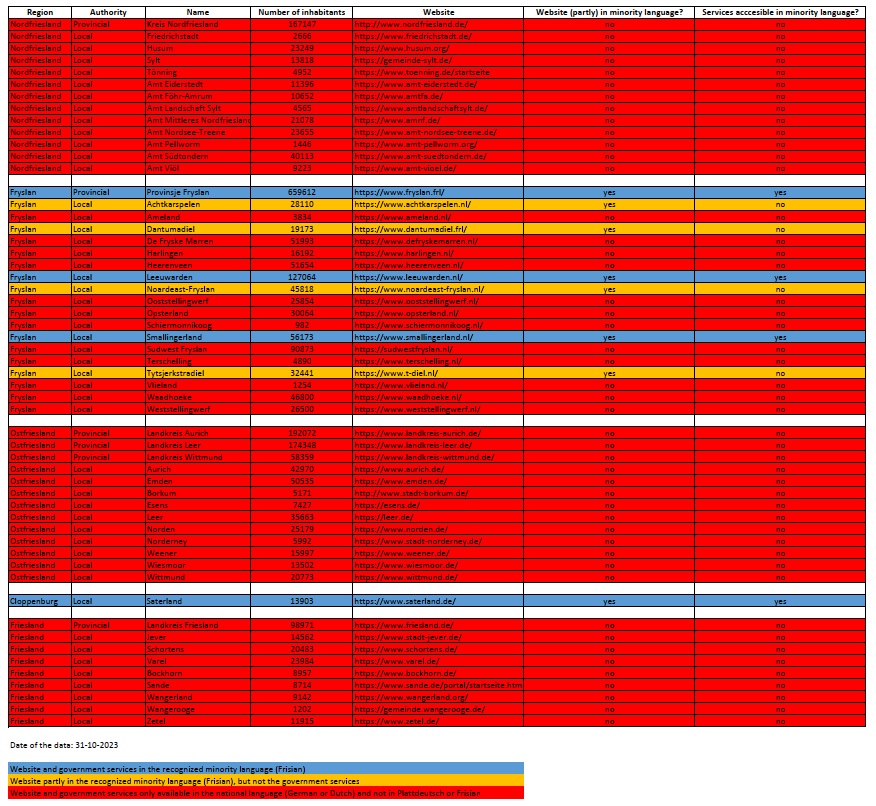I wish to highlight a challenge for democracy and human rights where it concerns the access to government services.
Many government services are currently digitally available. However, it comes with risks of exclusion. For example, the Frisians, who are a recognized national minority in the north of Germany and the Netherlands, can for the most part not access these services in the Frisian language.
This week we submitted input to the UN report on ‘promoting human rights in public service delivery’[1]. This input provides an overview of all the websites of the local and regional governments in the Frisian areas.
Of the more than fifty local and regional governments, only three also offer their services in the Frisian language. An additional four local governments provide an information leaflet, but not the services in the Frisian language. The other websites, more than forty, are solely in Dutch or German. This comes despite the fact that both the Netherlands and Germany explicitly state in the ‘law on the Frisian language’[2][3] that contact with the authorities can be in the Frisian language. However, this right is not implemented digitally by most local and regional governments.
In order to bridge this digital divide, priority should be given to providing the Frisian minority the same e-government services in the Frisian language as in Dutch and German.
Thank you,
Jeroen Zandberg
Global Diplomatic Council
Contribution to the Roundtable: Challenges and Risks from New and Emerging Technologies – STI and Human Rights and Fundamental Freedoms, Democracy and Development (Friday 3 November 2023).
[1] Human Rights Council resolution 52/8 on promoting human rights and the Sustainable Development Goals through transparent, accountable and efficient public service delivery – input for OHCHR report – 1 November 2023
[2] https://www.rijksoverheid.nl/onderwerpen/erkende-talen/de-friese-taal
[3] https://www.minderheitensekretariat.de/en/specific-minority-legislation-and-measures/
(from the submitted report:)
Data on the use of Frisian in e-government
An overview of the provincial and local websites in the Frisian areas provides an insight into the use of Frisian in electronic government services. The data […] shows that most local and provincial websites do not provide services in the minority language. However, there are several municipalities who provide partial information in the Frisian language. These local governments are marked in yellow. They provide some of the static information on their website in Frisian, but the digital services themselves can only be accessed through the national language. The provincial website of Fryslan, as well as the sites of the cities of Leeuwarden, Smallingerland and Saterland, do offer their services in the Frisian language, which shows that if the political will is present, a truly multilingual website providing all e-government services is possible.

